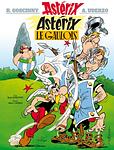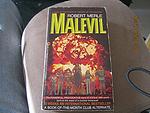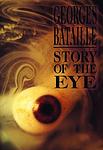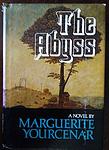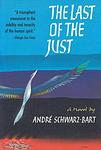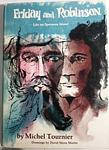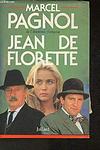The Greatest Russian, French "Fiction" Books Since 1950
Click to learn how this list is calculated.
This list represents a comprehensive and trusted collection of the greatest books. Developed through a specialized algorithm, it brings together 300 'best of' book lists to form a definitive guide to the world's most acclaimed books. For those interested in how these books are chosen, additional details can be found on the rankings page.
Genres
Countries
Date Range
Reading Statistics
Click the button below to see how many of these books you've read!
Download
If you're interested in downloading this list as a CSV file for use in a spreadsheet application, you can easily do so by clicking the button below. Please note that to ensure a manageable file size and faster download, the CSV will include details for only the first 500 books.
Download-
26. Platform by Michel Houellebecq
"Platform" is a provocative novel that explores the intersections of sex, business, and terrorism. The protagonist, a middle-aged man working in the French Ministry of Culture, embarks on a journey to Thailand after the death of his father. While there, he falls in love with a travel executive and they start a business capitalizing on sex tourism. However, their venture is violently disrupted by an extremist group, leading to tragic consequences. The novel is a critique of Western consumerism and a commentary on the clash between Western and Islamic cultures.
-
27. W, or the Memory of Childhood by Georges Perec
"W, or the Memory of Childhood" is a unique blend of autobiographical recollections and fictional narrative. The novel alternates between two storylines: one describing the childhood of a Jewish boy during World War II, and the other detailing a dystopian society on a mysterious island known as "W". The book explores themes of memory, trauma, and the loss of innocence, while also offering a critique of totalitarian regimes. The two narratives gradually converge, revealing the traumatic underpinnings of the protagonist's life and the allegorical nature of "W".
-
28. The Bridge Of Beyond by Simone Schwarz-Bart
This novel is an evocative portrayal of several generations of women in Guadeloupe, a tapestry of their joys, sufferings, and resilient spirits against the backdrop of post-slavery Caribbean society. The story centers on the life of Telumee, the last in a line of proud Lougandor women, as she navigates the complexities of love, poverty, and the lingering effects of colonialism. Rich in Creole culture, the narrative weaves together the supernatural with the everyday, creating a lyrical and poignant exploration of the enduring human spirit and the bonds of family, tradition, and heritage that shape our destinies.
-
29. The Erasers by Alain Robbe-Grillet
The book is a complex and innovative narrative that blurs the lines between reality and imagination, following a detective who is investigating a series of connected murders in a nameless town. As the detective delves deeper into the case, the story unfolds in a non-linear fashion, challenging the reader's perception of time and causality. The novel's structure, characterized by repetitive descriptions and a lack of clear resolution, reflects the themes of uncertainty and the elusiveness of truth, ultimately questioning the nature of existence and the reliability of memory and perception.
-
30. Summer in Baden-Baden by Leonid Tsypkin
"Summer in Baden-Baden" is a unique blend of fact and fiction that intertwines the author's own travels to Leningrad with a reimagining of Fyodor Dostoevsky's summer in Baden-Baden, Germany. The narrative shifts between the two journeys, exploring themes of obsession, identity, and the power of literature. The author's fascination with Dostoevsky serves as a lens through which he examines his own life and experiences as a Jew in Soviet Russia, while also providing a fresh perspective on the famous Russian author's life and works.
-
31. Asterix the Gaul by Rene Goscinny
In this comic book, a small Gaulish village in ancient France resists Roman occupation with the help of a magic potion that gives them superhuman strength. The story revolves around the adventures of a brave and clever warrior and his lovable, hefty sidekick. Their adventures are filled with humor, satire, and historical references, as they outwit their Roman adversaries and protect their village from various threats.
-
32. Suite Française by Irène Némirovsky
"Suite Française" is a two-part novel set during the early years of World War II in France. The first part, "Storm in June," follows a group of Parisians as they flee the Nazi invasion. The second part, "Dolce," shows life in a small French village under German occupation. The novel explores themes of love, loss, and survival, and provides a unique perspective on life in France during the war. The book was written during the war but was not discovered and published until many years later.
-
33. Malevil by Robert Merle
Set in the aftermath of a devastating nuclear war, the novel follows a group of survivors who find refuge in a medieval castle named Malevil. The survivors, led by the protagonist, must navigate the challenges of rebuilding their lives in a drastically altered world. They grapple with issues of survival, community, morality, and leadership as they encounter other groups of survivors with different philosophies and intentions. The story is a gripping exploration of human resilience, the will to maintain civilization, and the complexities of interpersonal relationships in a post-apocalyptic setting.
-
34. Blue of Noon by Georges Bataille
"Blue of Noon" is a provocative novel set in 1930s Europe during the rise of fascism. The story follows the life of an Englishman living in Paris, who is embroiled in a self-destructive cycle of sexual escapades and political extremism. His journey takes him through various European cities, where he engages in debauchery and encounters the political turmoil of the time. The book explores themes of existentialism, nihilism, and the human condition, offering a dark and complex portrayal of a man's struggle with his inner demons and the chaotic world around him.
-
35. The Abyss by Marguerite Yourcenar
"The Abyss" is a historical novel set in the 16th century that follows the life of Zeno, a physician, philosopher, and scientist. The narrative explores Zeno's journey from his birth in Bruges to his travels across Europe, his experiences during the Inquisition, and his ultimate death in Constantinople. The book delves into the intellectual and spiritual challenges of the Renaissance era, providing a profound exploration of the human condition, the quest for knowledge, and the struggle between faith and reason.
-
36. Second Thoughts by Michel Butor
"Second Thoughts" is a complex, stream-of-consciousness novel that unfolds during a train journey from Paris to Rome. The protagonist, a businessman, is traveling to meet his mistress, but as the journey progresses, he becomes increasingly introspective and starts to question his decisions. The narrative is nonlinear and fragmented, mirroring the protagonist's mental state, and the novel explores themes of time, memory, identity, and the nature of reality.
-
37. The First Man by Albert Camus
"The First Man" is a semi-autobiographical novel that explores the life of a man named Jacques Cormery, who grows up in poverty in Algeria, loses his father at a young age, and struggles with his relationship with his illiterate mother. The narrative delves into themes of identity, memory, and the human condition, as Jacques attempts to understand his past and his father's life, while simultaneously grappling with the harsh realities of colonial Algeria. Despite the challenges, Jacques remains determined to rise above his circumstances through education and personal growth.
-
38. The Life Before Us by Romain Gary
The novel is a poignant exploration of the bond between a young Arab boy, Momo, and an elderly Jewish woman, Madame Rosa, who is a Holocaust survivor and former prostitute. Living in the Belleville neighborhood of Paris, Madame Rosa takes care of the children of other prostitutes, and Momo becomes her protégé and closest companion. Through their relationship, the story delves into themes of love, loss, and the resilience of the human spirit in the face of adversity. The narrative, told from Momo's perspective, captures the struggles and the multicultural tapestry of life in a Parisian slum, while also addressing the weight of history and the complexity of identity and belonging.
-
39. Marivaux: Three Plays by Pierre Carlet de Chamblain de Marivaux
"Marivaux: Three Plays" is a collection of three significant works by a renowned 18th-century French playwright. The plays explore themes of love, deception, and class in the context of French society of the time. The characters are often caught in complex situations that test their moral values and emotional resilience, providing readers with a profound understanding of human nature and societal norms. The plays are known for their sophisticated language, psychological depth, and intricate plot twists, making them a classic in French literature.
-
40. The Clay Machine-gun by Victor Pelevin
"The Clay Machine-gun" is a surreal and complex novel that explores the nature of reality and illusion. The story is set in post-Soviet Russia and follows a protagonist who has multiple identities, including a poet in 19th-century Russia, a 20th-century psychiatric patient, and a 21st-century advertising executive. The narrative moves between these identities and realities, blurring the lines between them and creating a layered and philosophical exploration of Russian society, identity, and the human psyche.
-
41. The Horseman on the Roof by Jean Giono
"The Horseman on the Roof" is a historical novel set in 19th century France during a cholera epidemic. The story revolves around an Italian nobleman who is a member of a secret revolutionary group. He is forced to flee his homeland due to political turmoil and ends up in Provence, where he encounters and falls in love with a beautiful woman. As he travels through the plague-ridden countryside, he faces various trials and struggles, reflecting on the nature of honor, duty, and love.
-
42. The Last Of The Just by André Schwarz-Bart
The book is a poignant and harrowing narrative that follows the tragic history of the Levy family over eight centuries, focusing on the lineage of the "Just Men" - thirty-six pure souls in each generation said to bear the sufferings of the world. The story culminates with the life of Ernie Levy, who, despite the encroaching horrors of the Holocaust, maintains an unwavering faith in human goodness. His journey through the ghettos and concentration camps of World War II Europe is a testament to the endurance of the human spirit in the face of unspeakable evil, as he upholds his family's legacy of compassion until his last breath.
-
43. Friday by Michel Tournier
The novel tells the story of Robinson, a European man who becomes the sole survivor of a shipwreck on a remote tropical island. He attempts to create a civilization in his image, but his efforts are largely unsuccessful. When a native named Friday eventually arrives on the island, Robinson attempts to teach him his ways. However, Friday, who is free-spirited and in tune with nature, fundamentally challenges Robinson's worldview. The novel explores themes of colonialism, the nature of civilization, and the tension between individual freedom and societal order.
-
44. August 1914 by Aleksandr Solzhenitsyn
"August 1914" is a historical novel set during the early days of World War I, focusing on the disastrous Battle of Tannenberg on the Eastern Front. The book provides a detailed portrayal of the Russian army's defeat, largely due to incompetent leadership and lack of communication. The narrative also delves into the lives of the soldiers and civilians involved, offering a broad examination of Russian society and the impending revolution.
-
45. The Vice-Consul by Marguerite Duras
This novel follows the story of three lonely, dispossessed people in Calcutta, India: a troubled former French diplomat, a young French woman haunted by her past, and a poverty-stricken Indian woman. As their lives intersect, they grapple with desire, despair, and the struggle for redemption. The narrative is a complex exploration of colonialism, privilege, and the human condition, told through the lens of these three characters' tragic and intertwined lives.
-
46. Things: A Story of the Sixties by Georges Perec
This novel follows the lives of a young couple living in Paris during the 1960s. The couple, both freelancers, dream of a luxurious lifestyle filled with expensive goods and high-class culture. However, they struggle to achieve their aspirations due to their low income. The book explores themes such as consumerism, societal pressure, and the gap between dreams and reality, providing a critical look at the materialistic desires and ambitions of the young generation during the sixties.
-
47. Manon des sources by Marcel Pagnol
"Manon des Sources" is a poignant tale set in rural France. It is the story of a young woman, Manon, who lives in the French countryside and discovers that her family's water source has been blocked by two neighboring farmers. To avenge her father's death, which she believes was caused by this act, she decides to withhold the water source from the entire village, leading to a series of tragic events. The narrative explores themes of greed, revenge, and the profound connection between humans and nature.
-
48. The Roots of Heaven by Romain Gary
The novel is set in post-World War II French Equatorial Africa and follows Morel, a French environmental activist who is fighting to protect elephants from extinction. Morel's crusade against elephant poaching not only draws the attention of other Europeans living in Africa, but also inspires a range of African characters to join his cause. The narrative explores themes of freedom, nature, and the struggle against colonialism and commercial exploitation.
-
49. L'Abbé C by Georges Bataille
"L'Abbé C" is a provocative novel that explores the life of a Catholic priest who is caught in a web of forbidden love and sexual desire. The story is set in the early 20th century and follows the tormented life of an unnamed priest who is struggling with his religious vows and his illicit feelings for a young woman. This intense psychological novel delves deep into the themes of faith, morality, and the nature of desire, presenting a stark and controversial portrayal of religious life.
-
50. The Day of the Dolphin by Robert Merle
The book follows a brilliant and dedicated scientist who successfully trains dolphins to communicate in English. His ultimate goal is for them to become the world's first underwater spies, capable of infiltrating enemy territories undetected. However, his plans are derailed when the dolphins are kidnapped for a sinister plot to assassinate the President. The scientist must race against time to save both his dolphins and the President.
Reading Statistics
Click the button below to see how many of these books you've read!
Download
If you're interested in downloading this list as a CSV file for use in a spreadsheet application, you can easily do so by clicking the button below. Please note that to ensure a manageable file size and faster download, the CSV will include details for only the first 500 books.
Download




